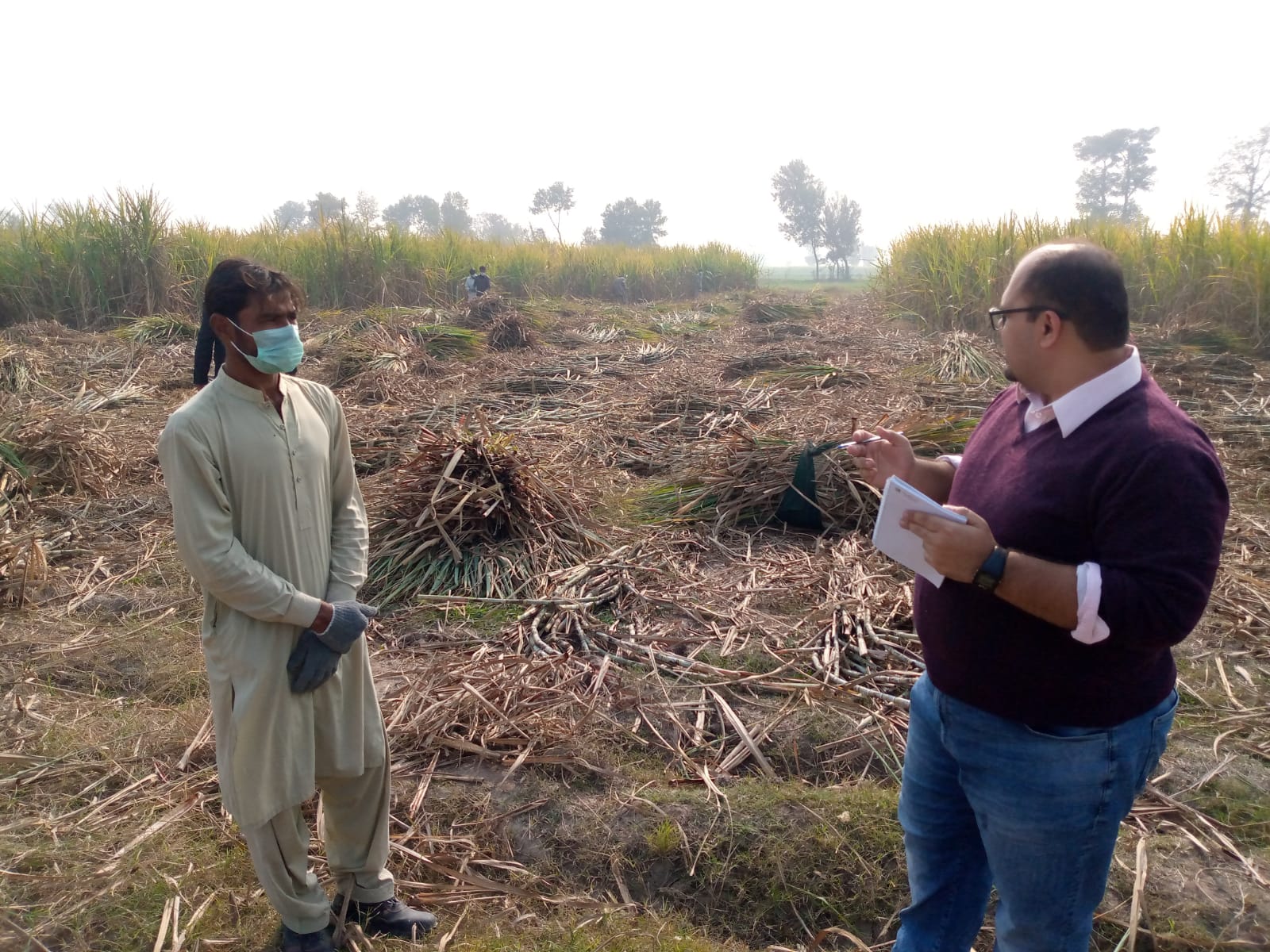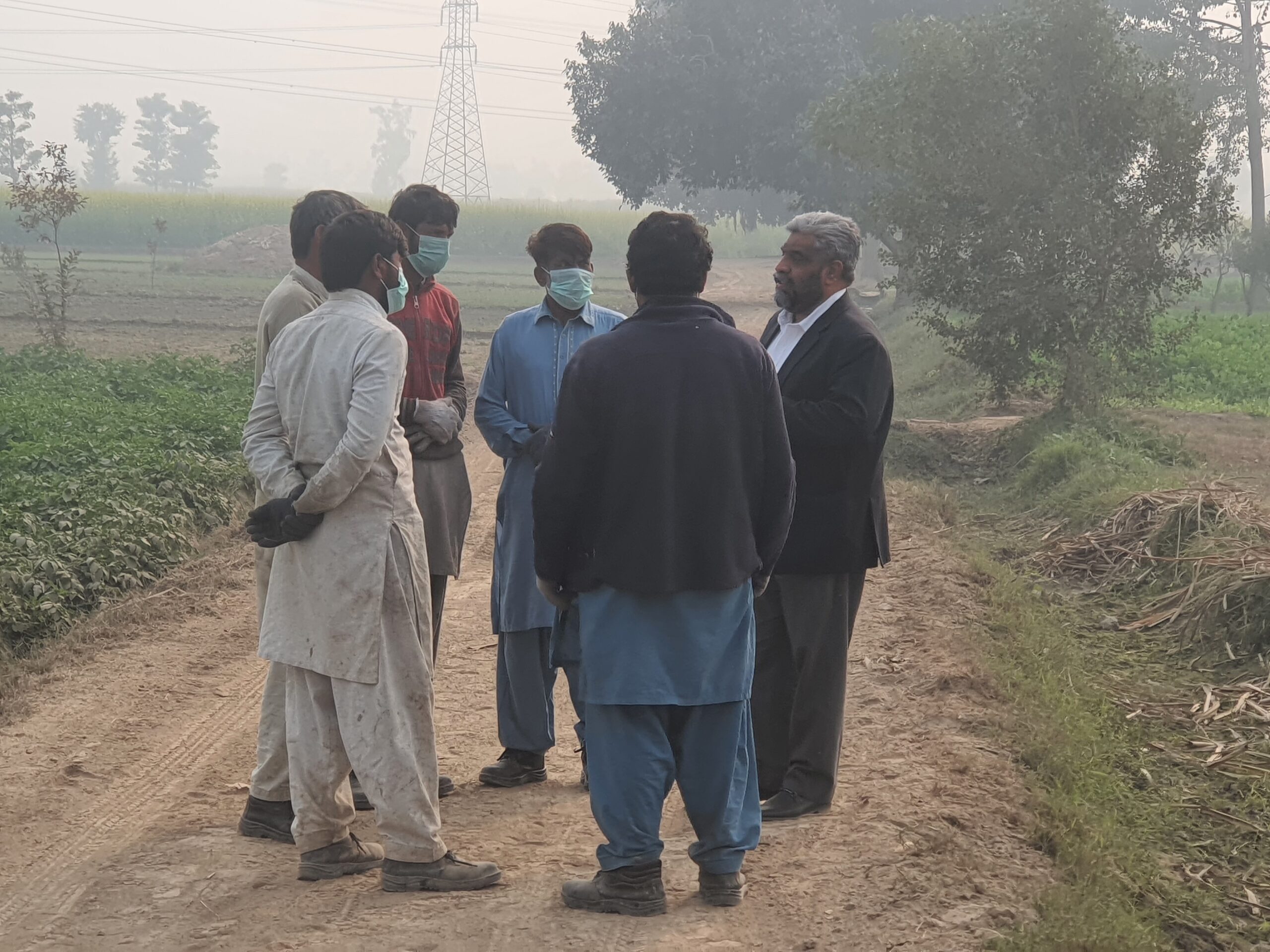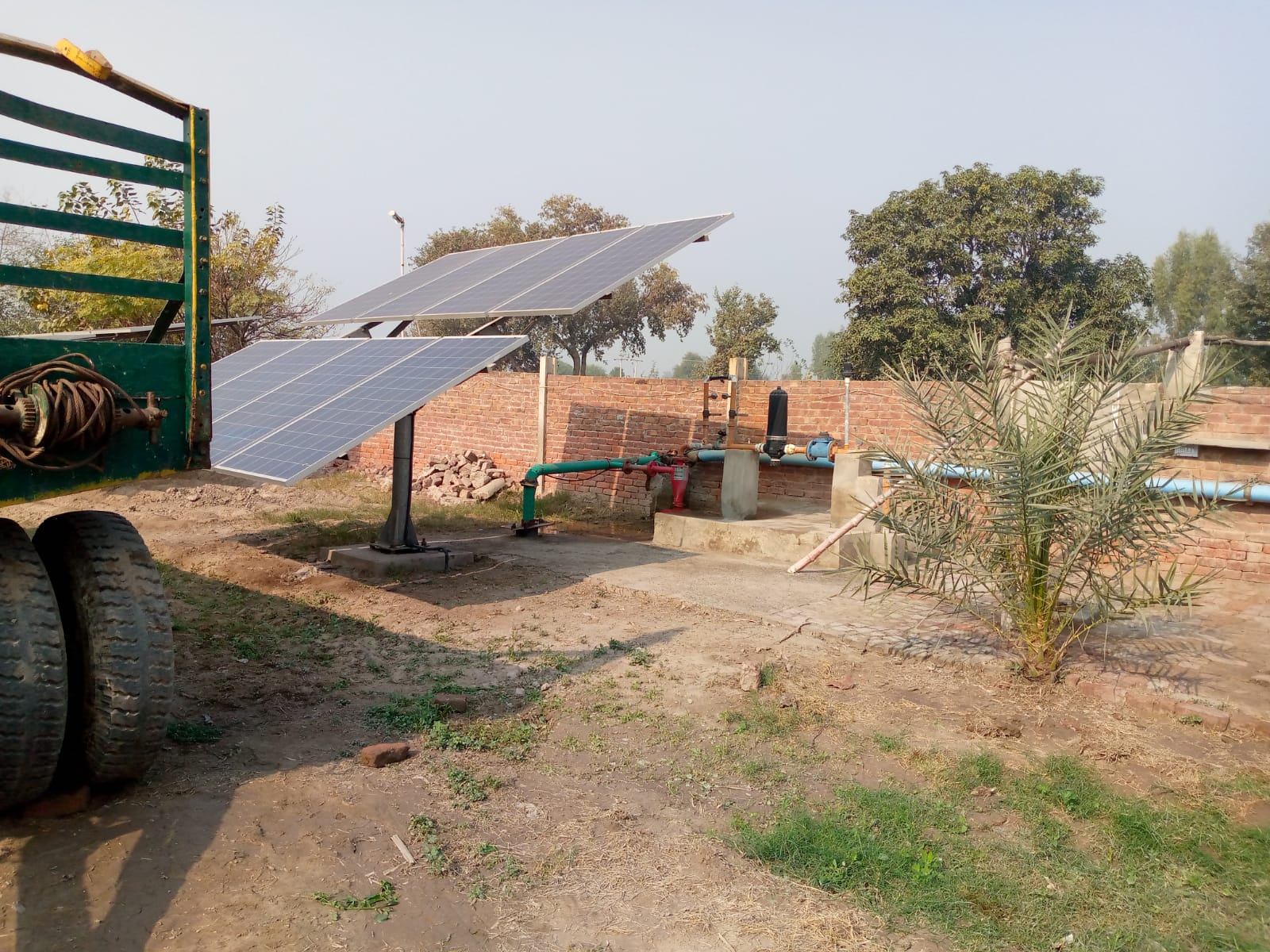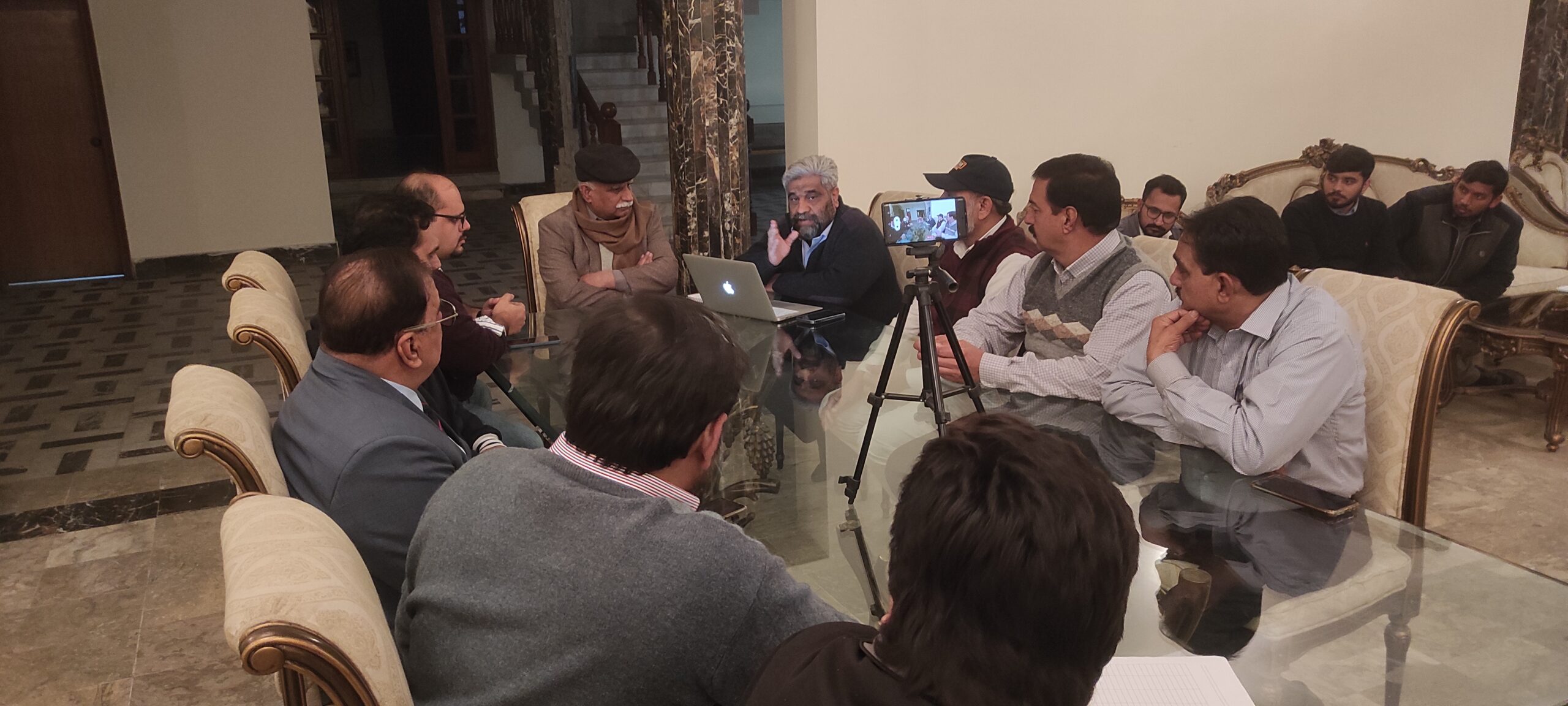20th July 2023
Momentum for sustainable practices in sugarcane production continues to build in Pakistan. Baba Farid Sugar Mills Limited (BFSML) becomes the third mill to achieve Bonsucro certification – and the first in Pakistan to be certified against version 5.1 of the Bonsucro Production Standard. It has been working with the smallholder farmers in this area of certification to ensure they comply with the Bonsucro Production Standard for Smallholder Farmers. BFSML has also achieved certification against the Bonsucro Chain of Custody Standard.

Photo from BFSML, taken during their audit
BFSML belongs to a group of associated companies. This group includes The Thal Industries Corporation Limited and Almoiz Industries Limited, whose mills (Layyah Sugar Mills and Almoiz Unit 2, respectively) were the first in Pakistan to achieve Bonsucro certification against version 4.2 in 2021.
BFSML itself is a sugar mill and manufacturer of white refined sugar, located in Okara in the Punjab region of Pakistan. Established in 1978, it employs over 400 workers, and now has 404 hectares of land certified by Bonsucro.
Pakistan is one of the world’s largest sugarcane producers, but according to the Global Climate Risk Index it is also one of the most vulnerable to the impacts of climate change due to recurrent catastrophes. A 2013 study concluded that, for every one degree increase in temperature in Pakistan, a 10% decrease in yield of sugarcane is expected – but there will be ever greater demand for resources like water. Through Bonsucro certification producers can adapt their practices to become more resilient to the impacts of climate change, helping farmers to increase their crop yields and income whilst lowering their use (and cost) of key resources.
The journey to certification
The group of associated companies BFSML belongs to is committed to promoting sustainable agriculture and creating lasting value for sugarcane growing communities and the local ecosystems, which led to the certification of Layyah Sugar Mills and Almoiz Unit 2 in 2021.
In Pakistan, major corporate clients are placing greater emphasis on sustainability and compliance with sustainability standards. These clients have indicated their preference is to buy sugar from mills that have achieved Bonsucro certification. After observing the market move towards sustainability, and the impact of certification on the other mills in their group, BFSML chose to work towards certification themselves.

Changes made
The Bonsucro Production Standard requires compliance with five core principles. Principle four requires producers to actively manage biodiversity and ecosystem services. BSFML’s agriculture team trained farmers to implement field-level changes in their production processes. These changes ranged from reducing tillage to optimising the level of fertiliser applied based on soil testing and employing an integrated pest management system.
The smallholder farmers that have achieved certification alongside BSFML had to record data on their production and farm activities and resource use. To support the farmers to do this, BSFML’s agriculture team provided training on how to collect and record data, and ensured the farmers completed their farm diaries. As a result of implementing more sustainable practices, many of BSFML’s smallholder farmers increased their sugarcane yields.
Another key change for BSFML was the use of clean and green energy across their operations, on both the agriculture and milling side of the business. Shahzad Amjad Shahzad, Head of Sustainability and Compliance, commented that this change “not only reduced our environmental impact but also helped to improve efficiency and cut costs.”

Solar panel on BFSML’s land
The second principle in the Production Standard is “respect labour rights and occupational health and safety standards”. Core indicators for this principle include access to safe water and adequate sanitation facilities, and access to personal protective equipment. BFSML now provides suitable and free-of-cost facilities for its staff. “Not only does this ensure compliance with Bonsucro requirements, but it also boosts employee morale and retention.”, says Senior General Manager, Javed Iqbal Kahlon.
All producers certified against the Standard must meet non-core criteria as well. Some of these indicators BFSML met by ensuring farmers and their workers receive health and safety training, covering basic first aid techniques and job hazard analysis.
“This accomplishment positions us well for the future, as major corporate customers are increasingly looking for sugar suppliers with Bonsucro certification or actively working towards it.” says Rana Asghar Khan, General Manager (Agriculture). Achieving certification required a collaborative effort across the whole organisation, from senior management allocation the necessary resources, to departmental heads overseeing compliance with the Bonsucro Production Standard criteria, and the farmers who voluntarily adopted Bonsucro-compliant practices.

Consultation during the audit
Throughout its certification journey, BFSML benefitted from the training and capacity building programmes provided by a Bonsucro expert, as well as webinars and online discussions hosted by Bonsucro. Mr Shahzad commented that “these resources proved to be invaluable” in ensuring compliance with the Standard.
Next steps
BFSML is committed to integrating sustainability into its business strategy and operations. Managing Director, Nauman Ahmed Khan, says: “We are excited to invest in communities, promote sustainability awareness and skills, and provide a safe and healthy workplace. We also strive to support a low-carbon economy, respect the environment, and promote resource efficiency to improve ecosystems. Additionally, we recognize our responsibility in providing local services without compromising future generations’ needs.”
It plans to continue improving in areas covered by the Bonsucro Production Standard criteria, reducing greenhouse gas emissions, and improving gender balance in the workforce.
You can find out more about the Bonsucro Production Standard and the certification process here.





